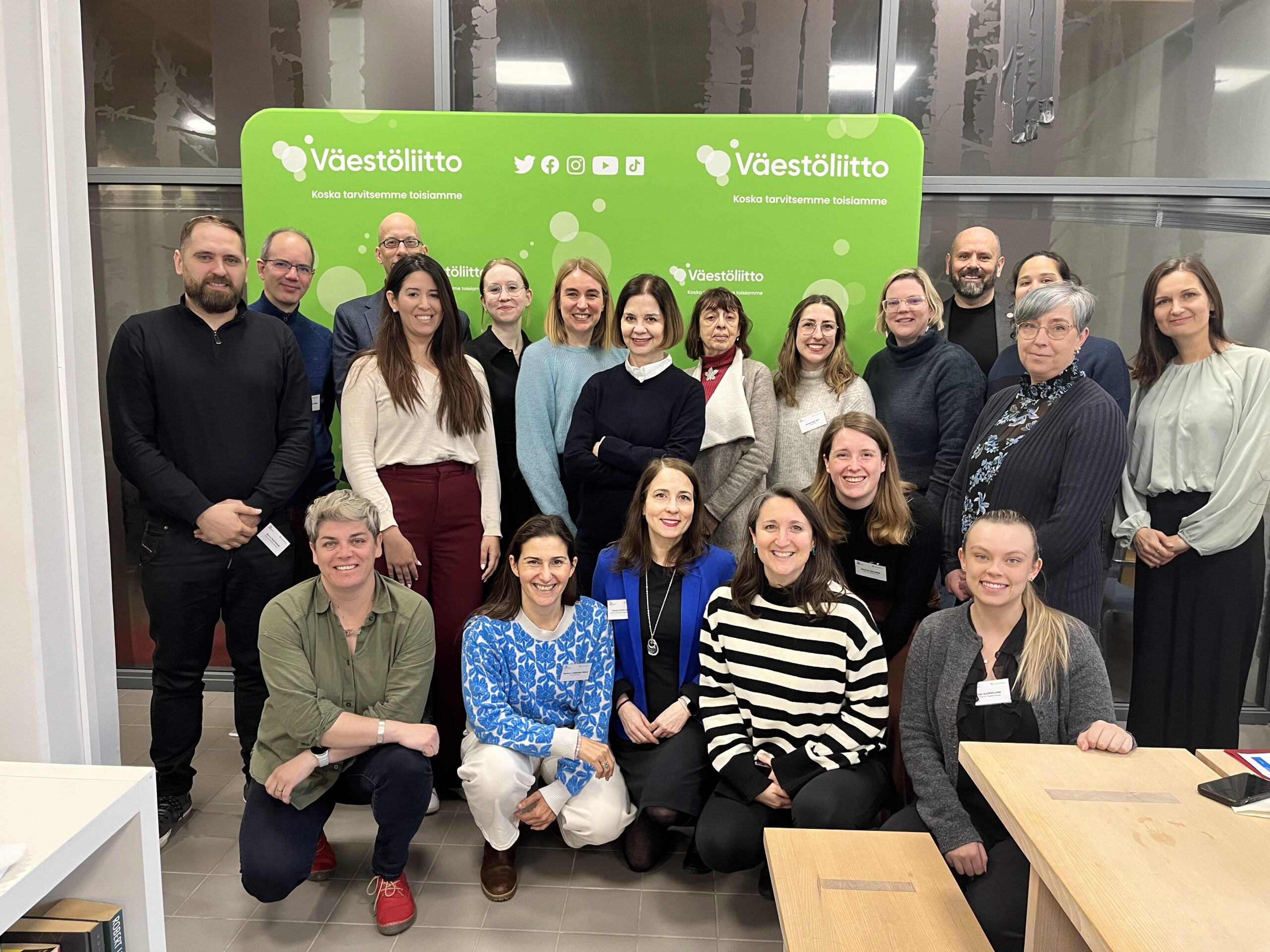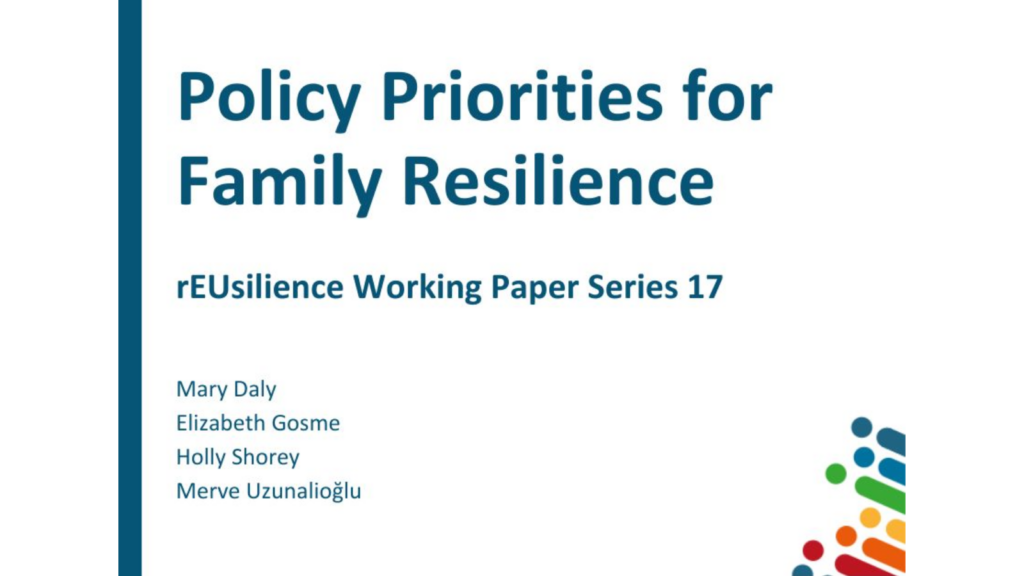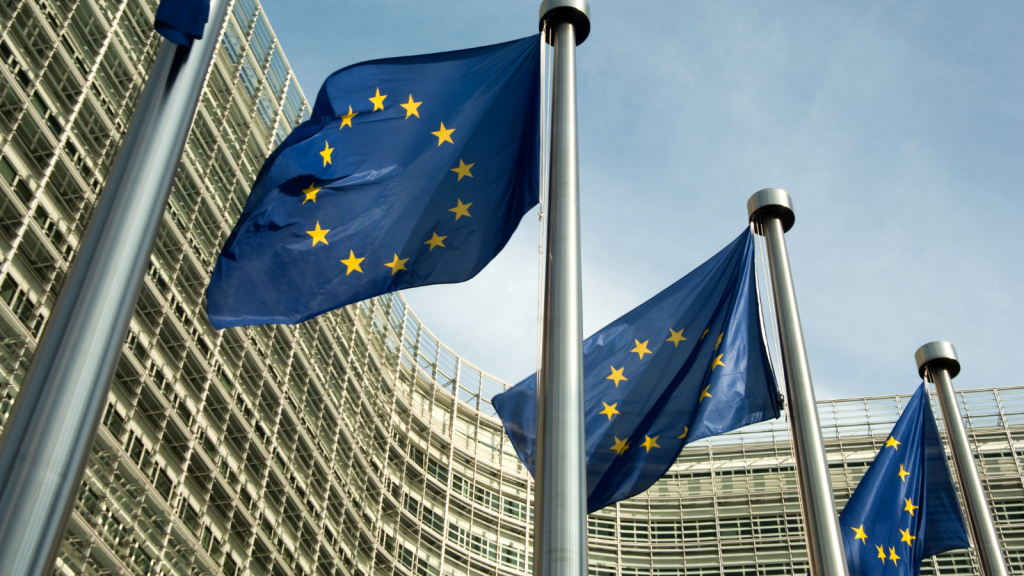For children and their families, the digital and physical world are seamlessly connected. Parents and carers have a key role to play in guiding their children through the digital environment and in making sense of both positive and negative experiences. This role should be recognised and supported through a strong regulatory framework, ongoing dialogue and sharing of experiences between parents/carers, children and other stakeholders, awareness raising and evidence-based support and prevention measures. Children’s exposure to harmful risks online should be reduced without compromising their opportunities to benefit from the positive impact of digital technologies. Families are diverse and need a wide range of support measures from different policy areas, such as social, family, health, education and digital policies.
COFACE and its member Vaestoliitto (the Family Federation of Finland) brought family organisations and safer internet centres together in Helsinki on 8-9th April for strategic discussions. The aim of this working group meeting was to explore the intersections between family, education and digital policies, to address key digital challenges for families of today, and to build stronger partnerships between family organisations, Safer Internet Centres and other stakeholders including Better Internet for Kids Youth.
The discussions started with a a spotlight on the Finnish reality studying recent trends in digital wellbeing of families, existing resources to boost their media literacy and what kind of support is in place in the NGO sector. The group also discussed key challenges including sharenting, the use of parental control tools, prevention of child sexual abuse online, families and artificial intelligence, smartphone bans in schools and how to prevent online bullying. The meeting also included a spotlight on EU developments such as the implementation of the Digital Services Act (with a spotlight on article 28 which covers protection of minors online), the implementation of the Artificial Intelligence Act, and the negotiations around the Commission’s proposal for a Regulation on prevention and tackling child sexual abuse online as well as the revision of the Child Sexual Abuse Directive. As well as new initiatives of the European Commission coming up such as the Digital Fairness Act, a European action plan against cyberbullying and a study on the Impacts of Social Media on Well-being and Mental Health is to be launched at the end of 2025.
Some takeaways include:
- There are concerns regarding the economic and advertising models underpinning online platforms, as well as frustration with the opacity of social media algorithms and their role in promoting harmful content. This includes the impact of algorithmic design in children’s media and its link to addictive behaviour and exploitation.
- There were calls for stronger preventive approaches and family/youth participation, and the need to reinforce the role of NGO family support as well as boosting and disseminating the resources provided by safer internet centres across Europe.
- The alarming trends in AI-generated content and the risk it poses to children must be addressed as a high priority. The discussions underscored the multifaceted impact of AI on family life, highlighting the need for educational initiatives, open dialogues, and ethical considerations to ensure AI serves as a beneficial tool without compromising mental health, creativity, or safety.
- Sharenting is a complex issue involving emotional, ethical, and societal dimensions. While parents have rights, they also carry the responsibility to protect their children’s digital identities. There is a need for better tools, clearer guidelines, and inclusive conversations that involve both parents and children in deciding what is appropriate to share online.
- The group agreed that while regulation and parental controls form an important safety net, these measures should work in tandem with open, honest dialogue between parents and children. By aligning technical safeguards with clear communication and trust, families can better navigate the challenges of the digital age, ensuring both safety and respect for privacy as children grow older. However, the ICT industry need to continue ensuring their digital products and platforms are safe and child-rights friendly by design.
- The participants discussed the complexity of implementing smartphone bans in schools. While bans may offer certain benefits (such as better focus on educational experiences), a holistic approach that includes education on digital literacy and parental involvement is essential for fostering a safe and conducive learning environment for students. There is a need for a European overview of these bans and how they are implemented (e.g. in Spain there are general guidelines which are implemented differently locally, while in Finland national legislation banning smartphones in all schools during lessons will become applicable in August), and to call for an impact evaluation of these bans.
Further information and resources can be found here.





